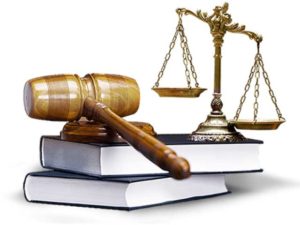
To speak to a Lawyer
Call: 613-703-5599
Bail Hearings

Mathieu Tremblay
5 days ago
★★★★★ After a domestic incident I was removed from my home. At the bail hearing the judge was going to prohibit me from having any contact with my children. Thankful the lawyer was able to convince the judge otherwise, but I was glad he was there.
Colin Davies
7 days ago
★★★★★ My husband was charged with impaired driving and over 80. We felt totally hopeless. It was difficult, but these guys were with us every step of the way, supporting us, explaining next steps, always answering our questions. They always were easy to get in touch with and answer questions. As a result of their work, the impaired driving and over 80 charges were withdrawn. My husband ended up with careless driving ticket, no criminal record. We are very grateful to this amazing team of knowledgeable and skilled criminal lawyers. We would recommend them to anyone who is in trouble and does not know what to do.
Jacob Cohen
1 week ago
★★★★★ At the bail hearing the crown ask the judge to keep me in jail, even though I’d never been in trouble before. My lawyer told the judge the crown was wrong, it was a relatively minor situation for a person with a previously clean record. The judge agreed with my lawyer.
Mark Reyes
2 weeks ago
★★★★★ I was in the bail court with another person who didnt have a lawyer, after a couple of other cases I could see he was worried. My lawyer got me out and then when back into the court room to help this other guy without even knowing him. I thought that was pretty impressive and showed the type of people that were helping me.
Mark Reyes
2 weeks ago
★★★★★ I was charged with Care and Control of a Motor Vehicle over 80mg. From the moment I contacted Mr. Charitsis, I was put as ease. The trial was simply outstanding to watch my lawyer cross examining the officer who charged me. In the end, I was acquitted thanks to the expertise of these lawyers. If you have been charged with a criminal offence then I would highly recommend!
Past results are not necessarily indicative of future results and litigation outcomes will vary according to the facts in individual cases.
More Google Reviews >Bail Hearings
Bail Hearings: Understanding the Process and Why You Need a Lawyer

If you or a family member have been arrested for a criminal offence, the court may require a bail hearing to determine whether the accused should be released from custody while awaiting trial.
The purpose of a bail hearing is to demonstrate why the accused should be kept in custody or released while awaiting the trial.
As bail hearing lawyers, here we’ll discuss everything you need to know about bail hearings, including what they are, why they are necessary, and why you need a lawyer.
What is a Bail Hearing
A bail hearing is a court proceeding to determine whether an accused person should be released on bail (released from custody) while awaiting trial. When a bail hearing is held, the judge must consider several factors before deciding whether to release the accused person or keep them in jail.
What the Judge Considers in Bail Hearings
The judge must consider the following four factors when deciding whether to release the accused on bail or keep them in custody:
- is the identity of the accused is known
- will the accused repeat the criminal act
- is the accused is likely to appear for their trial
- has all evidence has been obtained
Why is a Bail Hearing Held
Bail hearings are necessary when one or more of the following grounds exist in a criminal prosecution:
- To ensure that the accused attends court:
- will the accused appear for trial
- there is a risk that the accused would flee the jurisdiction.
- does the accused have a history of failing to attend court or failing to abide by court orders.
- To protect the public:
- accused has a history of violence
- accused is likely to commit other crimes.
- accused has a criminal record for similar offences
- fear that the accused will return and hurt the victim or another person
- To maintain confidence in the administration of justice:
- gravity of the offence
- circumstances surrounding the offence
- court considers the strength of the prosecution’s case
- potential for a lengthy jail term.
- To obtain or gather evidence for the court case the police may:
- still be gathering evidence for the case
- not want the accused to be able to contact others involved in the matter
- have requested the accused be held in custody because the case is ongoing
Joan St. G., Ottawa
What is Reverse Onus Show Cause?
In some cases, a bail hearing for more serious criminal charges may be considered a “reverse onus.”
Reverse onus means that the onus is on the accused to show to the court why they should be released, not the crown attorney.
The accused will be held in custody unless the accused or their lawyer can prove to the court why they should be released.
If a reverse onus bail hearing is to take place and the accused or their family desires their release from custody, it is highly recommended to hire a bail hearing lawyer. This will prevent the accused from being detained in jail while awaiting trial.
What Happens in Bail Hearing?
Criminal justice procedures can be complex, and one such procedure is the bail hearing.
Representation by one of our bail hearing lawyers is recommended to ensure the accused is released from custody. As well our bail hearing lawyers can ensure that no debilitating bail conditions are placed upon the accused as a condition of release.
What happens during a bail hearing:
- The accused is held in a jail cell until their hearing. When a person is arrested and charged with a criminal offence, they may be held in jail until their bail hearing. During this time, they limited access to a phone or visitors.
- The accused is brought before the court. At the scheduled time of the bail hearing, the accused will be brought before the court either in person or via a video hearing.
- The hearing is held with the Crown Attorney, the Judge, accused, and the accused’s lawyer. The Crown Attorney will present the case against the accused, while the accused’s lawyer will argue for their client’s release.
- The judge considers the evidence and makes a decision. After hearing the arguments from both sides, the judge will decide whether to release the accused from custody or keep them in jail. The judge will consider several factors when making their decision, including:
- seriousness of the offence
- accused’s criminal record
- likelihood of the accused attending court if released
- likelihood of the accused reoffending if released
- strength of the Crown’s case against the accused
- The judge can impose bail conditions. If the judge decides to release the accused, they may impose conditions to ensure the accused attends court and does not reoffend. Bail conditions can include:
- curfews
- condition that the accused to live at a certain address
- prohibit the accused from contacting certain individuals
- surrender their passport
- report to a bail supervisor regularly
- The judge may require that a bond or cash deposit be placed by someone acting as a surety for the accused. The judge may require a bond or cash deposit to be placed by someone, such as a family member or friend, acting as a surety for the accused. This bond or cash deposit acts as a guarantee that the accused will appear in court and follow their bail conditions.
In conclusion, a bail hearing is a critical step in the criminal justice system, and its outcome can have a significant impact on an accused person’s life. Understanding the bail hearing process can help an accused person and their family prepare for what is to come and potentially influence the judge’s decision.
What is a Surety for Bail
Asking a friend or relative to act as a surety for an accused person is a common practice in the criminal justice system.
A surety agrees to supervise the accused person while they are released on bail and waiting for their criminal matter to be resolved in court.
Before you can act as a surety, there are several requirements you must meet. You must be over 18 years old, able to attend court to sign the bail, a Canadian citizen or a landed immigrant, not involved in the offense the accused person has been charged with, and have no outstanding criminal charges.
You must also be able to:
- monitor the accused person to ensure they are complying with the conditions of release,
- report a breach if one occurs, and
- have some financial assets you can pledge to the court as security.
Ideally, you should not have a criminal record and should not act as a surety for more than one person at a time.
As a surety, you have three responsibilities:
- ensure the accused person goes to court when required,
- ensure they follow the bail conditions, and
- call the police if they fail to comply with any of the conditions.
When you act as a surety, you must promise to give the court money if the accused person does not follow the conditions of their bail. This is called the “quantum of the bail” or the amount of the bail.
Usually, this money does not have to be paid upfront. The amount you promise must be significant to you and available from your own accounts or property, and you may be required to prove that you have enough money, such as by providing a bank statement or deed.
The justice of the peace or judge at the bail hearing decides the security amount.
If at any time you no longer want to act as a surety, you can apply in writing to be removed. A surety warrant will be issued for the accused person, and they will be arrested and put back into custody. However, if you change your mind later, you can ask to be a surety again. It is important to understand your responsibilities as a surety before agreeing to take on this role.
Why a Bail Hearing Lawyer
Where you or a loved one has been charged with a criminal offence at the Ottawa courts and are facing a bail hearing, it is highly recommended that you retain a bail hearing lawyer because:
- A bail hearing lawyer has experience that ensures the best opportunity for the accused to be released from custody pending trial.
- The bail hearing lawyer can also ensure that erroneous and prohibitive bail conditions are not place upon the accused.
- the accused need to be released from custody to best allow them to communicate with their lawyer, and to assist in the preparation for trial
Having a lawyer provides the accused with legal advice and representation throughout the bail hearing process, and throughout the case ensuring your best opportunity for success.
Don’t take any chances with your freedom and future. Hire a bail hearing lawyer who can advocate on your behalf and help you achieve the best possible outcome.
Get Legal Advice Now
613-703-5599



